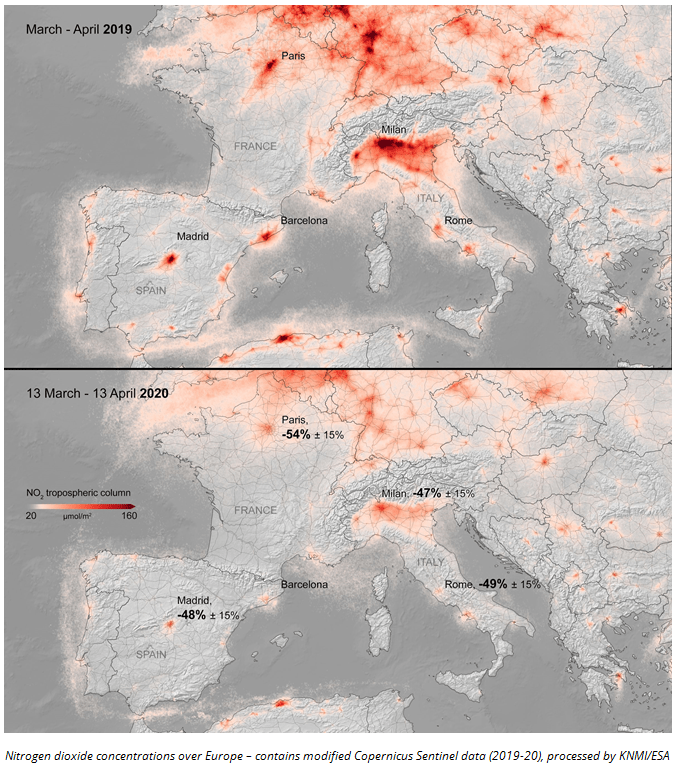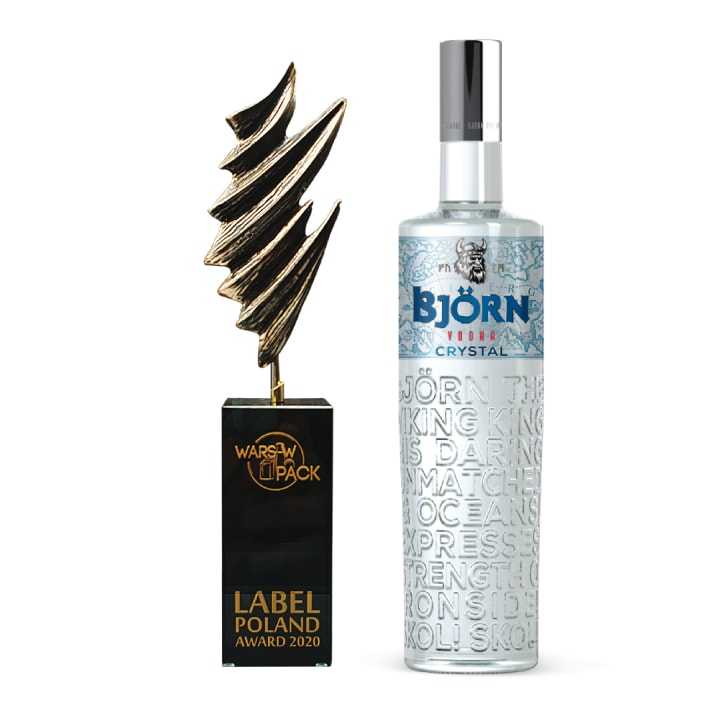Category: News
Under the auspices of AIM, the European Brands Association, over 85 companies and organizations from the complete packaging value chain have joined forces with the ambitious goal to assess whether a pioneering digital technology can enable better sorting and higher-quality recycling rates for packaging in the EU, to drive a truly circular economy. Masterpress is proud to be a member of this consortium.
One of the biggest challenges in achieving a truly circular economy in packaging is to better recover and sort post-consumer waste by accurately identifying the packaging by type, resulting in higher quality and increased quantities of recycled materials. Digital watermarks may have the potential to revolutionize how packaging is sorted in waste management systems, as it opens new possibilities which are currently not possible with other existing technologies. Under Ellen MacArther Foundation’s the New Plastics Economy program, digital watermarks were found to be the most promising technology, gathering support among the majority of stakeholders by passing a basic proof of concept on a test sorting line. The “HolyGrail 2.0” project is the next phase in as a cross-value chain initiative under which this development will take place on a much greater scale and scope. This will include the launch of an industrial pilot in order to prove the viability of digital watermarks technologies for more accurate sorting of packaging and higher-quality recycling, as well as the business case at large scale.
Digital watermarks are imperceptible codes, about the size of a postage stamp, covering the surface of a consumer goods packaging. They can carry a wide range of attributes such as manufacturer such as SKU, type of plastics used and composition for multilayer objects, food vs. non-food usage, etc. The goal is that once the packaging has entered into a waste sorting facility, the digital watermark would be detected and decoded by a standard high resolution camera on the sorting line, which then – based on the transferred attributes – is able to sort the packaging into corresponding streams. The result would be better and more accurate sorting streams therefore providing higher quality recyclates, adding benefit to the entire packaging value chain. Digital watermarks also have the potential to be used in other areas such as consumer engagement, supply chain visibility, and retail operations.
Global challenge
Nearly three years ago the amount of packaging waste in Europe reached a record level of 173 kg per capita – the highest in the history. Consequently, the European Commission declared tightening of the directive concerning packaging which is to be allowed to enter into the market. Ultimately, the plan assumes that by 2030 all the packaging in the UE market must be suitable for viable reuse or recycling.
Fortunately, modern consumers are aware of the problem of ever-growing amounts of garbage which pollute natural environment. The report drawn up by Unilever discloses the fact that over 33% of consumers prefer brands which, in their opinion, act in a pro-social and pro-ecological manner. This shows a significant change in their shopping habits. Contemporary consumers want to pay for ecological products in more sustainable packaging in order to fight for the protection of the environment, with a relatively little effort on their part.
This is a strong message to manufacturers to be socially responsible. Therefore, new packaging solutions need to be balanced by meeting consumer expectations while being better for the environment.
Closed loop benefits
One way to minimize the amount of plastic packaging waste produced in an era of the continuous economic growth is to recycle and reuse it (downcycling).
Downcycling PET plastics, commonly used in single-use plastic packaging, may contribute to the reduction of growing amounts of plastic waste which threaten the soil, water, and air. It needs to be emphasised that reuse plastic material generates substantial decrease of the use of oil but, most of all, it significantly reduces the CO² emissions.
According to the report announced by Denkstatt, an Austrian consulting firm, it is more justifiable to use PET for bottles which originates from recycled PET rather than new “virgin” PET.
Post-Consumer Recycled (PCR) PET
Labels comprised of PCR PET, also termed rPET, combined with an rPET bottle makes it possible to obtain a fully balanced product. In the case of rPET bottles according to the study, the carbon footprint is equivalent to 0.45 kg of CO² whereas the carbon footprint fora virgin PET bottle would have the equivalence of 2.15 kg of CO².
In other words, the amount of carbon dioxide emissions during an rPET bottle’s life cycle is approximately 79% lower than in the case of a “virgin”l PET bottle.
Find a solution for your business
Here at Masterpress we offer post-consumer recycled PET solutions for both shrink sleeve labels and self-adhesive labels to help our customers achieve their targets of using recycled materials in their packaging.
Contact us for advice on integrating recycled content into your packaging labels!
Receiving the Silver Medal demonstrates our ongoing commitment towards improving sustainability and corporate responsibility.
EcoVadis is a ratings agency which evaluates the actions and business practices of suppliers concerning their corporate social responsibility. Companies are assessed on a scale from 0 to 100 points which are awarded in four different themes: the environment, social measures, ethics and supply chain.
The evaluation is formed by employing a complex methodology which is based on internationally applicable standards, such as Global Reporting Index (GRI), ISO 26000 and Global Compact guidelines. Suppliers are assessed in terms of corporate social responsibility, taking into account their business sector, size and location.
Globally and only over the course of a several months, self-isolation policies due to the coronavirus (COVID-19) outbreak reduced economic activity and had a powerful impact on the environment. As industries, transportation networks, and businesses closed, it brought a sudden drop in air pollution. The evidence could be seen in various reports, photos, and films which clearly indicated the environmental improvements were attributed to the reductions in economic activity.
Scientists from the Royal Netherlands Meteorological Institute (KNMI) have been monitoring air pollution over Europe in the past several months using data from the Tropomi instrument from the Copernicus Sentinel-5P satellite. The new images show the nitrogen dioxide concentrations from 13 March until 13 April 2020, compared to the March-April averaged concentrations from 2019. Madrid, Milan and Rome saw decreases of around 45%, while Paris saw a dramatic drop of 54% – coinciding with the strict quarantine measures implemented across Europe.

Nitrogen dioxide is produced from power plants, vehicles and other industrial facilities and can have significant impacts on human health.
In fact, some have described this side effect as a type of silver lining to this pandemic, forcing us to take a stronger look at pollution reduction as life slowly returns back to normal. The hope is that somehow the positive effect our recent actions have had on the environment will prompt adaptations to find improved ways of doing business which could help sustain this positive effect.
Sustainable Manufacturing
As we begin to return to a “new normal”, the importance of sustainable manufacturing will be increasingly important to maintain the positive environmental effects from self-isolation.
At Masterpress, caring for the environment is part of our corporate culture. Located in a region called “the green lungs of Poland”, our company has an additional obligation towards responsible manufacturing, and this has been an important part of our philosophy since the founding of our company. We believe that to perform as responsible business, we have an ethical obligation to understand and address our environmental impact. The opening of our modern, eco-friendly production plant in 2012 has allowed us to address this challenge.
The solutions integrated into our infrastructure and processes reduce energy, emissions, and waste to improve our impact on the environment and society.
Sustainability in Packaging
Unfortunately, however, not all environmental consequences have been positive. Demand for products during this period of social distancing, which mostly are packaged in plastic, sharply increased resulting in extreme amounts of single-use-packaging waste. Although next year Coronavirus may be a thing of the past, plastic pollution won’t be. The responsibility on brands to design their packaging for recycling and reduce natural resources, as in “virgin” plastics, will increase to address packaging waste issues.
Masterpress has a wide range of labeling materials and solutions with recycled materials and specifically designed to help facilitate proper recycling of containers.
With Covid-19 delivering unusual environmental benefits, we have never had a better chance to make a greener world. The big question is if we will be able to capitalize on this moment.
Contact us to learn more about our sustainable manufacturing and labeling solutions which can help you meet your sustainability in packaging challenges.
Dear customers,
In this emergency situation, Masterpress’s priority is invariably the safety of its employees and the security of its uninterrupted operations. We would like to inform you that production in our plant is still carried out in three shifts and all deliveries are carried out according to schedules.
Aware of Masterpress’ critical role in the supply chain to our customers, we have implemented a number of procedures to ensure the health of our employees and the smooth operation of the plant. You will find details in our statement.
We are constantly at your service.
[su_column size=”1/1″]
Due to current coronavirus situation in Europe, Masterpress would like to reassure you of our commitment to protecting the health and wellbeing of our employees. Read more about what we have introduced to assure uninterrupted supply to our customers. Read full statement below.
[/su_column]
[su_row][su_column size=”1/2″ center=”no” class=””]
[/su_column][su_column size=”1/2″ center=”no” class=””]
[/su_column][/su_row]
We are pleased to announce that Masterpress has been awarded the 2020 Label Poland Award during Warsaw Pack 2020 – International Packaging and Packaging Techniques Trade Fair held between 3 and 5 March, 2020 in Nadarzyn near Warsaw. The prize has been awarded for the pressure sensitive label decorating the bottles of Bjørn Crystal White premium vodka.
The double-side printed on transparent film, the Bjørn Crystal White label has won the recognition of the competition jury, due to its exceptional quality and precision of print job, as well as for perfectly matching the unique style of the product’s packaging. Both the bottle itself and the label perfectly communicate the special character of the product, symbolizing its unique features: masculinity, power and velvety taste of the drink.
Almost the entire surface of the Bjørn Crystal White bottle is covered with a unique typographic texture which was inspired by ancient Scandinavian runes that were carved in stone in the old days. The English text carved in the glass of the bottle tells the story of the Viking king. To learn the entire story, the bottle has to be turned around several times.
Thanks to its original shape, unique texture and a label visible from afar, the Bjørn Crystal White packaging definitely stands out on the shelf.
Bjørn Crystal White is a Polish premium vodka brand, produced by BZK ALCO S.A., which is part of the Bakoma capital group.

[/su_column][/su_row]
Our presentation on Packaging Innovations Warsaw 2018

Masterpress is a trusted producer of high-quality shrink sleeves and self-adhesive labels which can be seen throughout Europe. Visit us to learn more about: (more…)
Masterpress SA wins 2018 AWA Sleeve Label Awards.
(more…)
